#pagan holidays
Text
☀️Deities☀️
I see so many people criticizing others over their relationships, or lack thereof, with their deities, so here are some reminders:
Not having deities is okay.
Having just a devotional relationship with your deities is okay.
Having a working relationship with your deities is okay.
Playing games with your deities is okay.
Harmless jokes with your deities are okay.
Doing fun things with your deities is okay.
Doing devotional offerings for your deities is okay.
Giving physical offerings to your deities is okay.
Not being able to do certain offerings for deities is okay.
Having an altar for your deities is okay, no matter the size.
Not having an altar for your deities is okay.
Laughing with your deities is okay.
Crying with your deities is okay.
Having genuine conversations with your deities is okay.
Being unable to hear/see deities is okay.
Being able to hear/see deities is okay.
Not being able to communicate through divination is okay.
Using divination as a key element in communication is okay.
Not calling on deities during spellwork is okay.
Asking deities to help during spellwork is okay.
Asking deities for help in general is okay.
This is your relationship with your deities in your practice. Don't let anyone tell you what you can and can't do. 🫶
It's 2am, please forgive me if there are any mistakes!
#hellenic pagan#paganism#eclectic pagan#pagan#pagan witch#gay pagan#pagan blog#pagan community#divination#deity work#norse deities#greek deities#loki deity#hellenic deities#deity worship#apollo deity#deity witchcraft#gods and deities#deities#deity#greek paganism#pagan holidays#norse pagan#pagan altar#paganlife#pagans of tumblr#paganblr#eclectic witch#tarot witch#baby witch
864 notes
·
View notes
Text

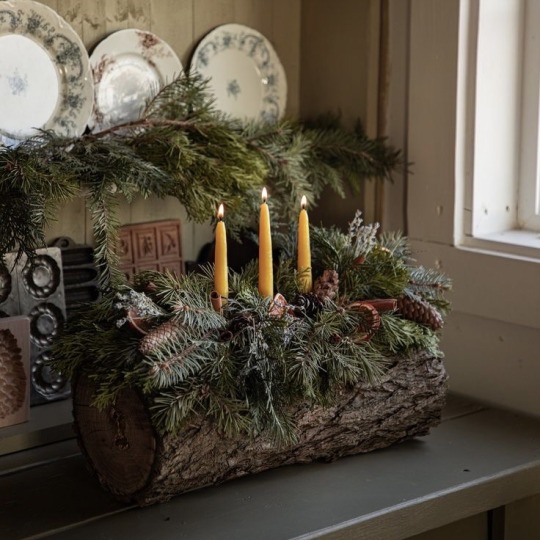
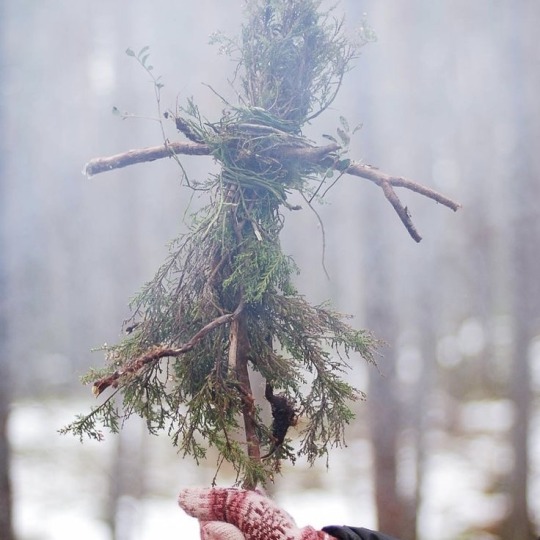
the weather gets colder and the days get shorter . . !

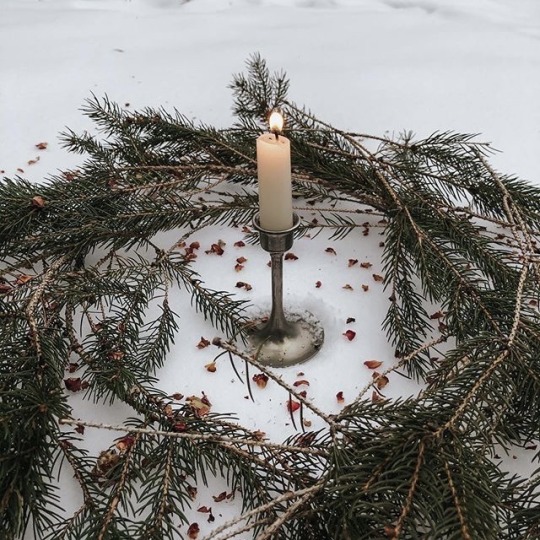

#posts#witchcraft#paganism#yule#witchblr#pagan holidays#winter solstice#wheel of the year#pagan witch#moodboard
939 notes
·
View notes
Text
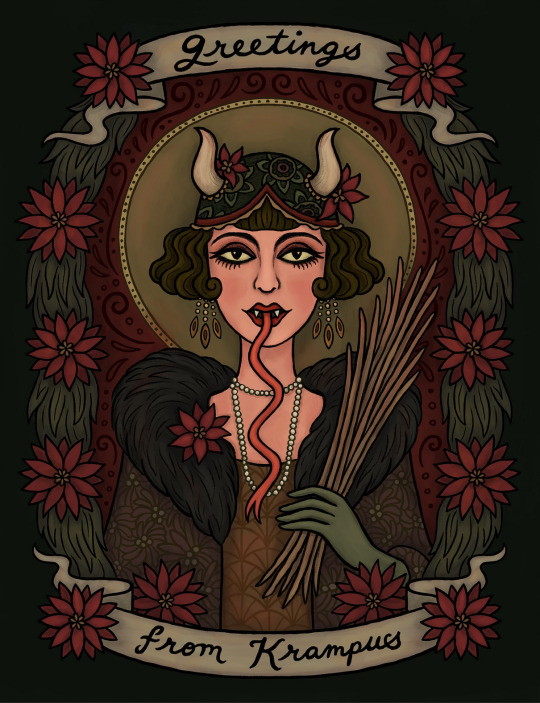



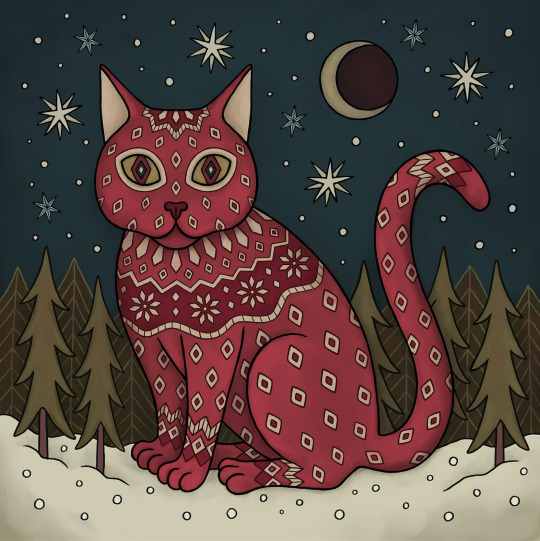

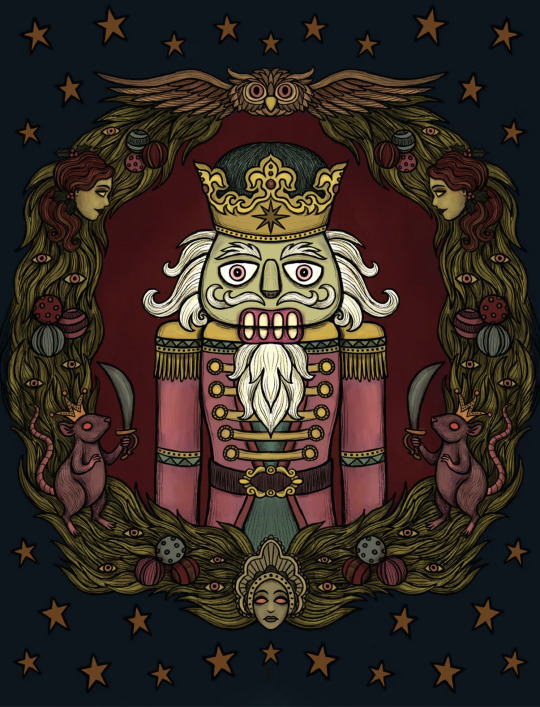

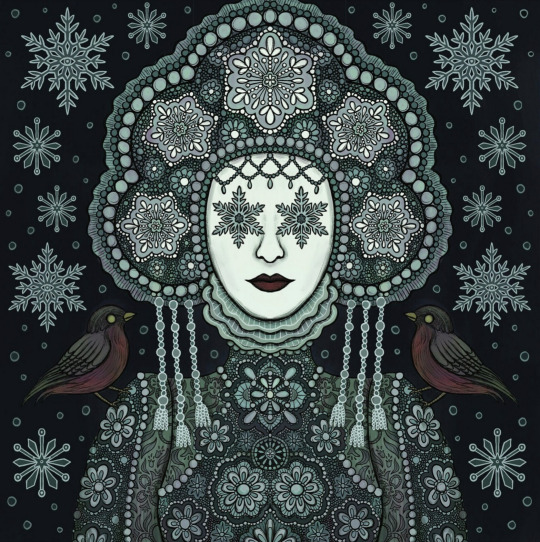
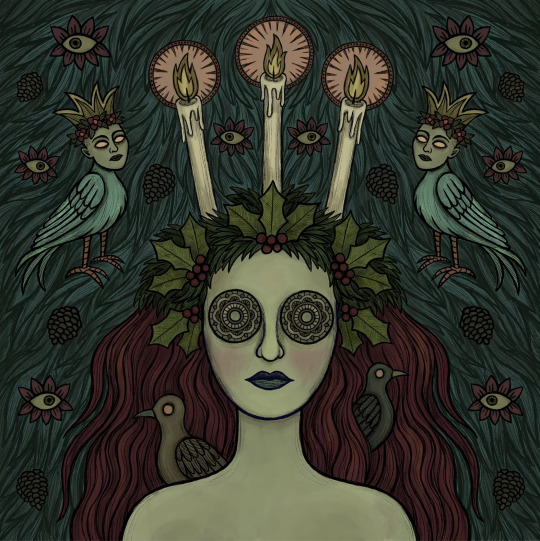
Witchy Holiday Cards & Art by DuchessofLore
x / x / x / x / x
x / x / x / x / x
#art#art print#christmas#xmas#yule#yuletide#christmas cards#holiday cards#witchy christmas#goth christmas#pagan#pagan holidays#mari lwyd#winter solstice#krampus#greeting cards#drawing#illustration
374 notes
·
View notes
Text
Outdoor Jól altar, set up by the Swedish Forn Sed Assembly in Gothenburg, Västergötland.

#inspiration#altar#pagan altar#yule#wheel of the year#pagan holidays#norse paganism#heathenry#norse gods#spirituality#deities#deity work#polytheism#paganism#pagan
386 notes
·
View notes
Text
I can’t be the only one who’s tired of modern capitaliszed Christmas and yearns for the old darker version of Christmas when people needed some form of joy and warmth to get them through the harsh cold, right?

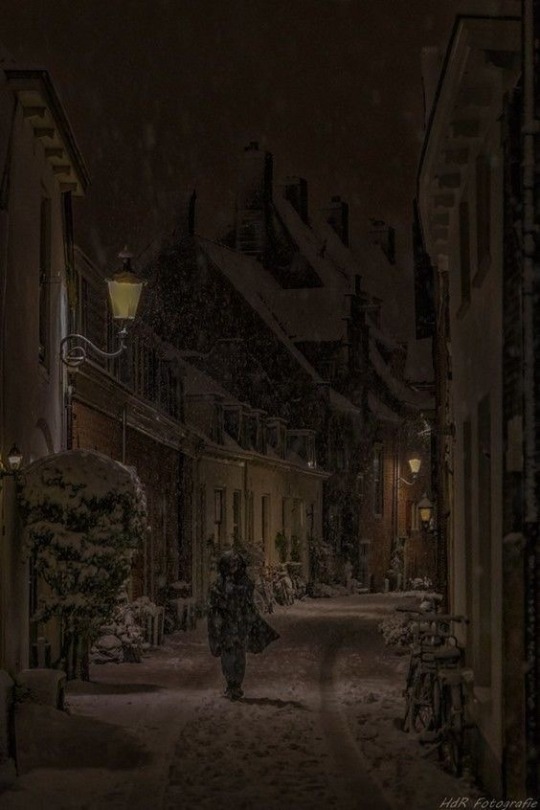



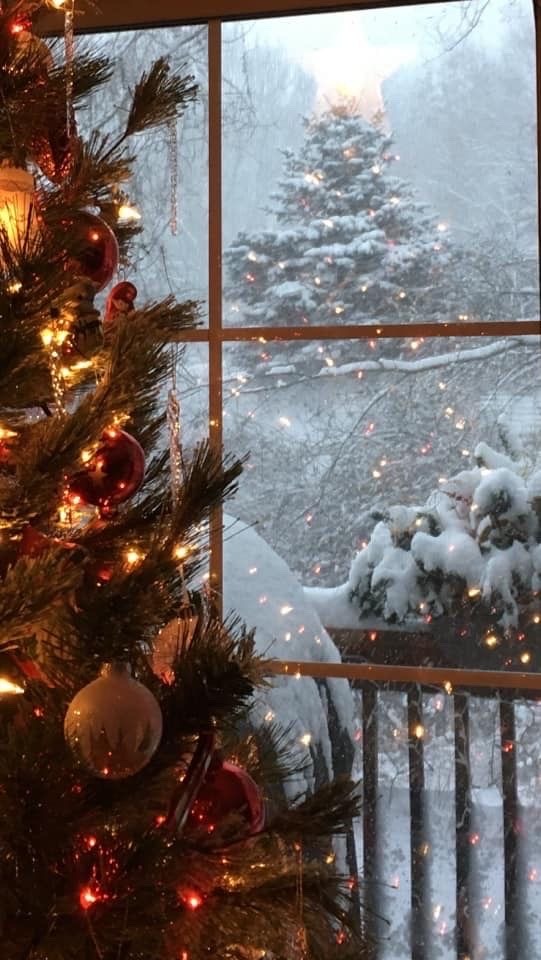
I live in Florida so, I don’t get snowfall, or much cool weather at all. But I feel like this whole country has kind of lost sight of the origins of Christmas, whether that be the Pagan holiday or the Christian version.
I really want to move somewhere that gives me Carol of the Bells or God Rest Ye Merry Gentleman vibes in winter y’know? That sort of hauntingly beautiful candlelit lamppost wreathes and pine trees and smoking chimneys Christmas. I dunno, just a thought🤷
#Christmas isn’t the same anymore#nostalgia for a time I never lived in#dark christmas#old christmas#christmas#christianity#paganism#winter#bring Christmas back#i love the presents don’t get me wrong#sigh#fypage#yule#witchcraft#yuletide#pagan holidays
335 notes
·
View notes
Text
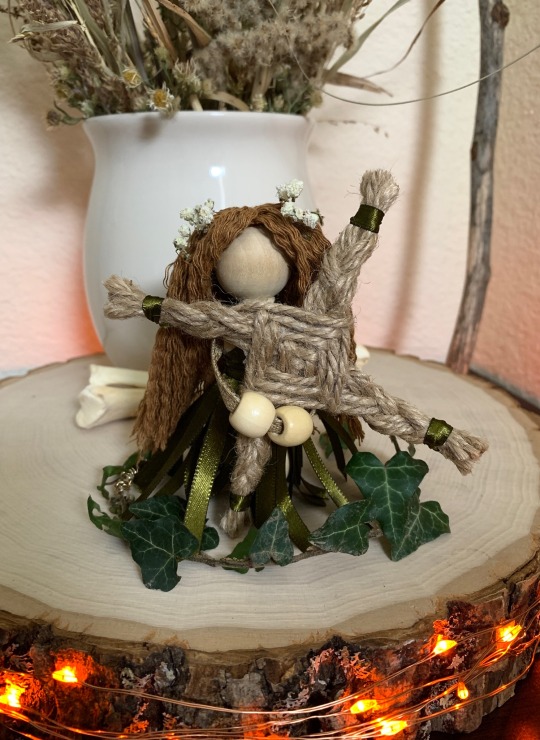
Brigid🤍🌾🕯️
#imbolc#imbolg#brigid#goddess brigid#st brigid#candlemas#baby witch#witchblr#witch community#witchcraft#paganism#pagan holidays#altar#altar ideas#my stuff
162 notes
·
View notes
Text
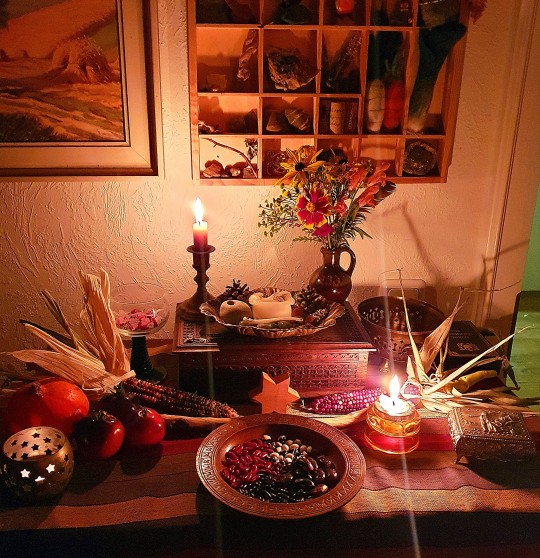
Ready for Fall 🍂 Flowers, glass gem corn, beans and tomatoes from the garden decorating the altar.
#hedge witch#cottagecore#green witch#pagan#goblincore#witch aesthetic#witchcore#cottage aesthetic#pagan holidays#autumn equinox#mabon altar#mabon 2023#mabon#witchcraft#witch#cottage witch
245 notes
·
View notes
Text
(Edit added below)
Is there anyone interested in a witchcraft newsletter or something of the like? I'm thinking about maybe starting a once a month newsletter that goes over the moon cycles of said month, correspondences, witchy holidays/days of observation, etc. Maybe even adding a section on crystals or herbs, interviews with other witchy creators. I've got a good amount of spare time on my hands, so it might be pretty fun. I do also want to add beginner friendly sections with tips and tricks for newbies. Let me know if anyone is interested
#green witch#pagan#wicca#magick#witchblr#green wicca#pagan witch#witchcraft#witchythings#witch#witchcore#witch community#pagan tumblr#spirituality#witchy#paganism#crystals#pagan holidays#paganblr#witches of tumblr#witchlife#beginner witch
138 notes
·
View notes
Text
Lokean Holidays

art by Sceith-A
With holiday season coming up across all cultures, I have decided to do a little something in honor of one of my own dedicated deities — Loki. Following the holiday theme (and looking forward to one of my favorite Loki festivals), today's post is all about Loki-specific holidays.
I will start off by saying that He does not have any known traditional holidays. We have no surviving evidence of any Loki-specific Holidays, and few evidence of Loki even being worshipped in ancient times.
So keep in mind these are all modern holidays that many lokeans (those who follow Loki) have adopted.
It's also important to note that not every lokean follows all, if any of these.
And lastly, I won't mention any of the usual norse pagan holidays, but you can definitely still honor Loki on those alongside other norse deities. It's just that they are not specific to him.
_________________♡♤◇♧_________________
Loki Fool's Day
April 1st
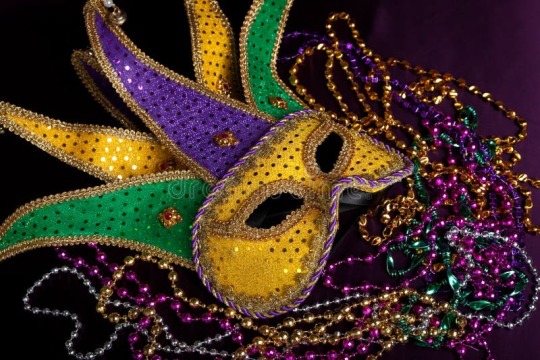
This was probably one of the first lokean holidays created, in honor of Loki as a Trickster and deity of Mischief.
It was proposed by Dagulf Loptson in his book "Playing with Fire", but I believe many of Loki's followers already thought of Loki during April Fool's before that.
Ideas:
Have fun
Play games
Make jokes and pull tricks
Reflect on Loki as a trickster deity and the trickster archetype in all its forms
_________________♡♤◇♧_________________
Lokabrenna
July – August (roughly)

The star Sirius was known to the norse people as Lokabrenna ("burning done by Loki", "Loki's torch"). The star would be gone for one half of the year, so when it reappeared at its highest point, that would be the date of Lokabrenna. Because of the connection to Loki's name, the day of Lokabrenna became a modern lokean holiday.
The date varies because it's connected to when the star Sirius shows up in the sky, so it depends on location.
In the southern hemisphere, Sirius can be seen throughout the year. In this case, Lokabrenna can be celebrated when it shows during both morning and evening, rising with the Sun.
You can adopt a date between the beginning of July to the end of August for convenience.
The following reddit post (at r/lokean) details one way you can find out the day of Lokabrenna for your location:
Ideas:
Prapare a ritual for Loki
Celebrate the comming season (summer in northern hemisphere, winter in southern hemisphere)
Meditate on Loki as a fire good and bringer of light, knowledge and creativity
_________________♡♤◇♧_________________
Loki Sponge Cake Day
September 4th
TW: brief mention of bullying

This holiday popped up in the community as an anti-bullying holiday. Basically, this happened because someone got mad at a lokean who got some store bought sponge cake as an offering to Loki and shamed them for it.
So this is a holiday to commemorate modern offerings and promote anti-bullying.
Ideas:
Anti-bullying awareness.
Get some store bought cake or other modern stuff to give as offerings and celebrate
Reflect on Loki as a deity of the Outcasts
_________________♡♤◇♧_________________
Loki's Holiday
December 13th

This holiday was proposed by Dagulf Loptson in his book "Playing with Fire".
This is because, on Dec 13th in Scandinavia, there is the feast of St. Lucia and the festival of light, which would symbolize the coming of light in the midst of darkness.
In his book Loptson states that he had asked Loki if there was a special day he could celebrate him, and the answer was Dec 13th, which he later learned was the day of St. Lucia.
So yes, this is the author's UPG, but it was widely adopted by the community.
In scandinavian countries the date also used to mark the Winter Solstice. As the longest night of the year, it was believed that all sorts of foul creatures would roam the earth, and the bringing of light could symbolize safety and the hope of warmer days to come.
While Loki and Lucia may not be directly related, they share a relation in the sense that they may come as "light bearers". Thus, many lokeans find it fitting to honor Loki on this day.
Ideas:
Celebrate the coming of light and Loki as a deity that brings fire, warmth and light
Give gingerbread treats, cakes, cookies, sweets, etc, as offerings
Celebrate with other Lokeans!
_________________♡♤◇♧_________________
Loki and Sigyn — 4th Day of Yule
December 23th
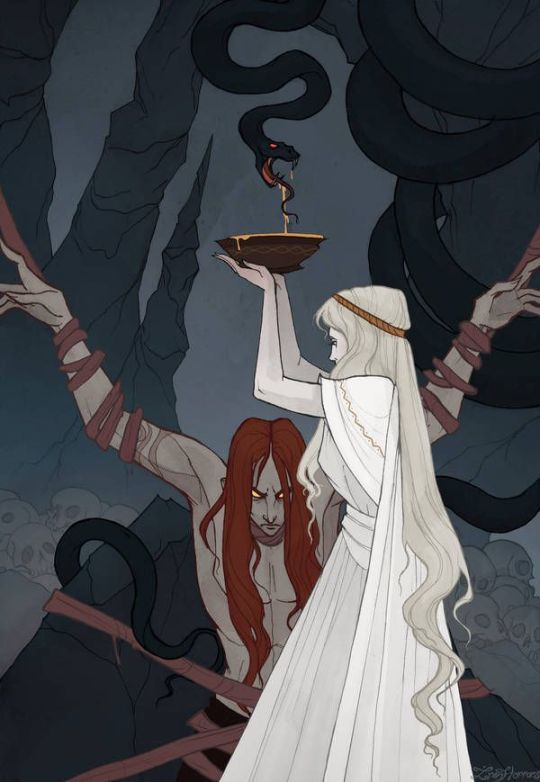
art by Ksenia Svincova
There is actually very little information on this holiday and how it came to be, and not many lokeans celebrate it.
So you may take this with a grain of salt.
From what I could find this one is actually tied to celebrating the 4th day of Yule and it honors both Loki and Sigyn.
It is a day to celebrate love (especially queer love) and devotion, as Sigyn loved Loki unconditionally, despite everything that he did and that had happened to him.
Supposedly, it also coincides with Saturnalia (Roman holiday, Dec 17th-23th), a day where social order is turned upside down — which is very much a Loki thing to do, as demonstrated in Lokasenna.
That said, I personally don't think the correlation with Saturnalia fits most heathens' practice. But Sigyn and Loki's relationship is highly defined by Her actions after Lokasenna, so I can see how you could make a connection.
Ideas:
Celebrate love, queer love
Pour libations
Do healing work and cleansing rituals
Celebrate Loki and Sigyn's union
_________________♡♤◇♧_________________
That concludes this post. Even if you do not work with, worship, or follow Loki, I hope you enjoyed the post!
Thank you for reading!
#norse loki#lokean#loki#pagan tips#norse heathen#heathenry#baby pagan#pagan#witchblr#witch#pagan witch#holiday#pagan holidays#loki holidays#baby witch#long post#witch tips#paganism#pagan festival#lokifest#lokabrenna#loki sponge cake day#loki fools day#april fools
115 notes
·
View notes
Text
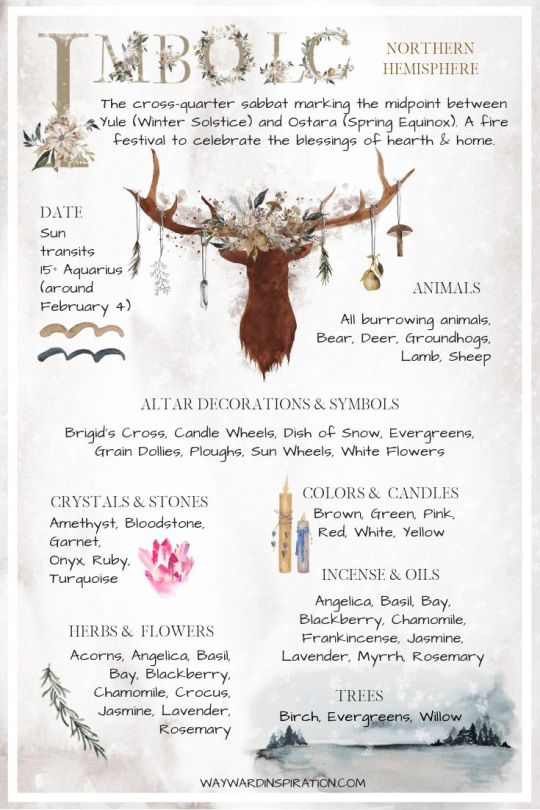
Our next sabbot! Im not as familiar with this one as I am samhain, yule, litha, and beltaine so if any of this is wrong I apologize. I do know this is the half way point between yule and the spring equinox.
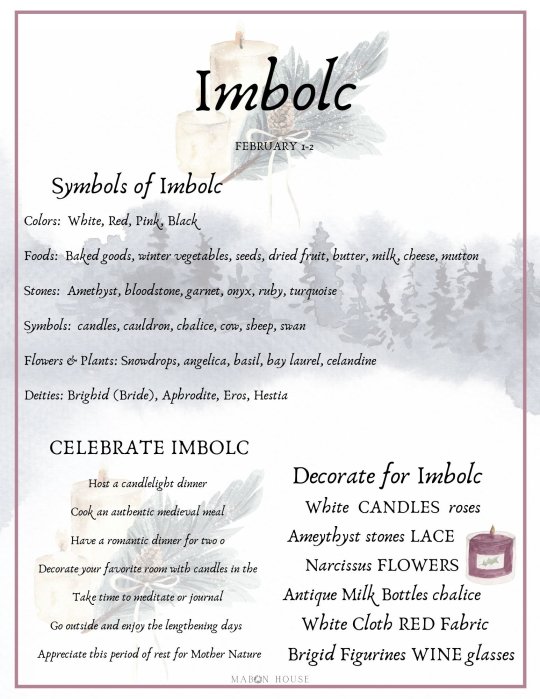
@acknowledge-reigns @reignsangel444
#pagan holidays#i am pagan#pagan witch#eclectic pagan witch#eclectic paganism#eclectic pagan#paganism#paganblr#pagans of tumblr#witchblr#witches of Tumblr#imbolc#witchy things#witchy woman#witchcraft#pagan community#hekatean witch
135 notes
·
View notes
Text



𝐇𝐚𝐩𝐩𝐲 𝐘𝐮𝐥𝐞𝐭𝐢𝐝𝐞!
I hope everyone is content, with their loved ones and safe.
My heart goes out to all those who cannot have that. I haven't spoken a lot about politics on my blog but I want everyone to know that I am Pro-Palestine, that Black Lives Matter and everyone should have a roof over their head and food on the table. There are many problems in the world, pointedly in Congo and Yemen.
I want to take the time to keep these people in my thoughts and hopefully bring awareness.
I'm also sending love to those who don't feel comfortable with their family right now. Who are in their rooms because it's all too much. I want you to know that you've got this. It will get better.
#witchthewriter#happy holidays#merry christmas#yuletide#happy yule#yule#yule log#winter solstice#merry yule#pagan holidays#pro-palestine#black lives matter#free congo#protect yemen
125 notes
·
View notes
Text
Introduction
Hey everyone!! I wanted to do a quick introduction post for all of you new people.
First of all, it's AMAZING to meet all of you! I am loving the positivity I've received on this platform so far. Bless all of you for being so wonderful 💖🫶
My name is Jordan, but you may also call me Sun. I am 18 years old, and I use he/she/they pronouns. I've been practicing paganism for eight years (so since I was ten years old!), and my mom is also a witch.
I currently work with Apollo (eight years), Loki (four years), and Hades (like two days haha).
Some fun facts about me:
1. I'm starting freshman year of college in the summer, and am working towards a PhD in psychology!
2. I'm courting to be a godspouse :)
3. Outside of witchcraft, I like to bake, sing, write songs, and write books/poetry/essays!
4. I have a dog named Stitch!
5. I have over 35 tarot decks (nearly 40!)
I want to remind y'all that I am ALWAYS open to questions and DMs! I love answering things and talking to people in general. I need more friends too 🫶🫶
Here are some pictures to reflect my practice!

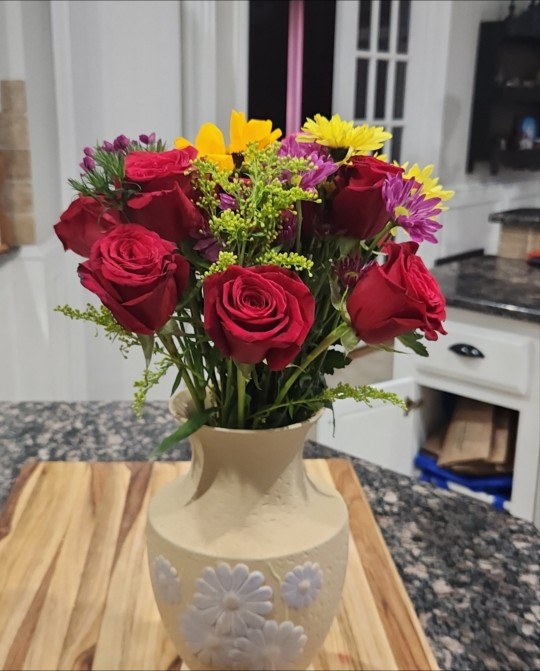



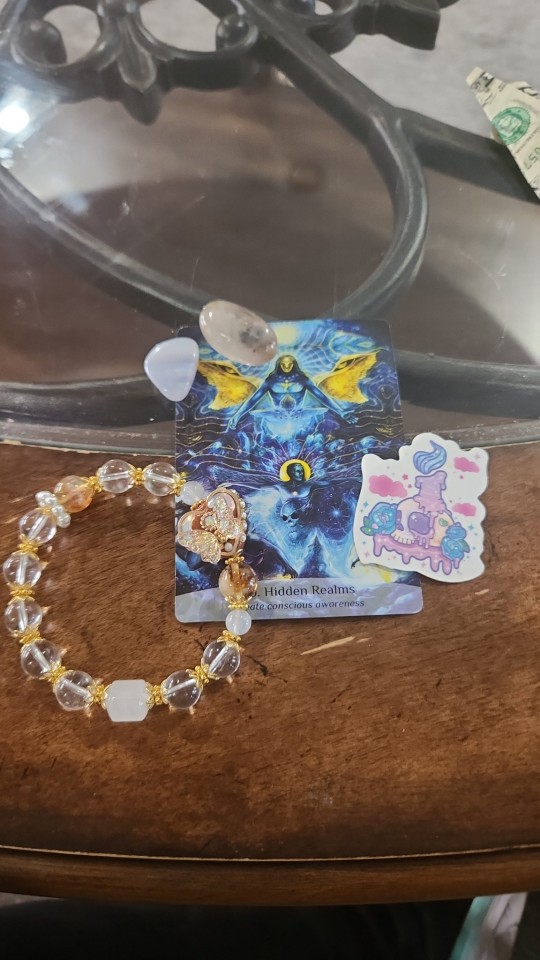
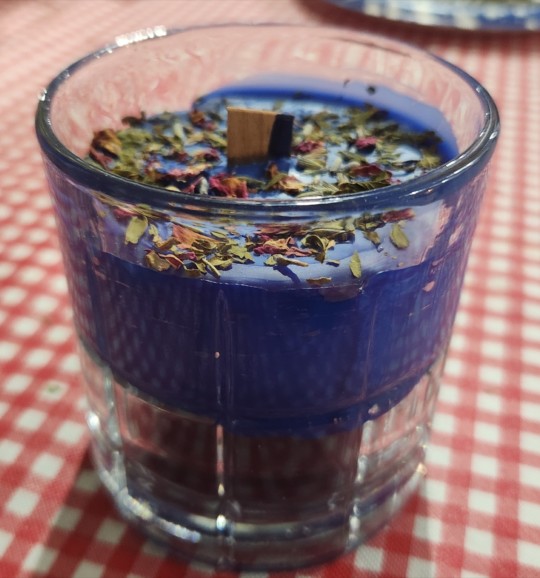



That's all! Love y'all <3 take care of yourselves!!!!
#hellenic pagan#paganism#eclectic pagan#pagan#pagan witch#gay pagan#pagan blog#pagan community#divination#deity work#greek paganism#pagan holidays#norse pagan#pagan altar#paganlife#pagans of tumblr#paganblr#hellenic polytheism#hellenic polythiest#hellenic polytheist#hellenic gods#hellenism#hellenic deities#intro post#introduction#godspouse#norse gods#greek gods#saints#christopagan
65 notes
·
View notes
Text
Every Pagan Holiday
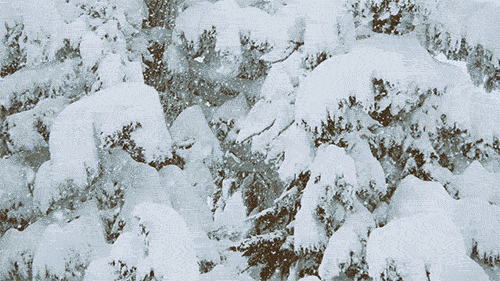
JANUARY
KALENDS
1st January
Origins: Ancient Greece/Rome
Observed by: Hellenic/Roman polytheists
Honouring Janus/Juno, first day of the Year. Kalends brought us the word 'calendar'.
ÞORRABLÓT (THORRABLÓT)
End of January/beginning of February
Origins: Iceland
Observed by: Heathens, Asatru
Midwinter Festival honouring Thor, usually by feasting and poetry.

FEBRUARY
IMBOLC
2nd February
Origins: Celtic polytheism /Ireland, as St. Brigid's Day
Observed by: Most neopagans, Wiccans, Druids, Asatru (as Charming of the Plow)
Imbolc is the most widely known and observed pagan holiday in the months of January and February. It falls at the beginning of spring/end of the winter for the Celtic peoples; marking the changing of the seasons, as most holidays do. St. Brigid is a Christianised form of or inspired by the Celtic fertility goddess Brigid who is celebrated on this day.
PARENTALIA
13th-21st February
Origins: Ancient Rome
Observed by: Greco-Roman polytheists
Translating to 'Ancestors Day', Parentalia is a nine-day celebration of deceased ancestors. Historically it was observed by feasting and making offerings and sacrifices to the dead and spirits of the underworld.
VÁLI'S BLOT
14th February
Origins: Old Norse
Observed by: Heathens, Asatru, Norse polytheists
Váli's Blot is considered by some Asatru to be the Norse equivalent of Valentine's Day but is widely acknowledged as a season changing festival. A day for marriage and celebrating with family and friends, and for remembrance of Váli, the son of Odin who defeated Höðr on this day.
LUPERCALIA
15th February
Origins: Ancient Rome
Observed by: Greco-Roman polytheists
Festival thought to honour a wolf who raised abandoned princes, celebrated originally by sacrificing goats to the gods, feasting, and, for fertility, nudity and fornication.
LESSER ELEUSINIAN MYSTERIES
17th-23rd February
Origins: Ancient Greece
Observed by: Hellenic polytheists
Initiation to the cult of Persephone and Demeter by sacrificing a pig. Prelude to Greater Mysteries, initiations held on these dates. Once completed, initiates could then move onto Greater Mysteries in the autumn.
ANTHESTERIA
27th February - 1st March 2021
Origins: Ancient Greece
Observed by: Hellenic polytheists
Athenian festivals dedicated to Dionysus and the dead. Held around the full moon in the month of Anthesterion, which in the Gregorian calendar this year roughly translates to 27th February.
THE DISTING/DÍSABLÓT
End of February/beginning of March
Origins: Uppsala, Sweden
Observed by: Heathens, Asatru, Norse polytheists
Celebration of Valkyries and other female spirits, called dísir. Sacrifices were made for a good harvest. Celebrated still by an annual market in Sweden.
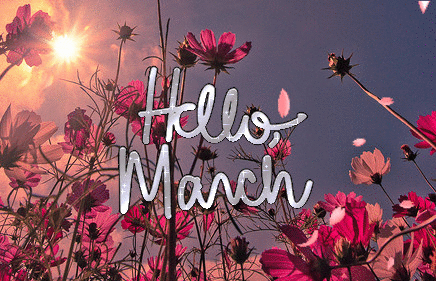
MARCH
KALENDS
1st March
Origins: Ancient Greece/Rome
Observed by: Hellenic/Roman polytheists
Honouring the god Mars/Ares. Kalends brought us the word 'calendar'.
OSTARA/EARRACH
20th March
Origins: Anglo Saxon paganism, popularised as Ostara by Wicca
Observed by: Anglo Saxon Pagans, Wiccans, Neopagans, Druids (as Alba Eilir), Heathens (as Summer Finding), Ásatrú (as Sigrblót)
The northern hemisphere's vernal equinox, the word Ostara was introduced though Wicca and named for the goddess Eostre. Surprisingly unrelated to Easter in all but name, Ostara symbolises the beginning of spring. As a seasonal holiday it is widely celebrated by many different groups of pagans.
RAGNAR LODBROK'S DAY
28th March
Origins: Icelandic Sagas
Observed by: Ásatrú
Day of remembrance for Ragnar Lodbrok, Viking King of legend

APRIL
KALENDS/VENERALIA
1st April
Origins: Ancient Greece/Rome
Observed by: Hellenic/Roman polytheists
Celebration of the first of the month, this one honouring the goddess, Venus.
REMEMBRANCE FOR HAAKON SIGURDSSON
9th April
Origins: Norway, C9th
Observed by: Ásatrú
Day of remembrance for ruler of Norway who claimed lineage to Odin in the Icelandic Sagas.
WALPURGISNACHT
30th April
Origins: German Christianity, originally Saint Walpurga was known for banishing witches and other pests
Observed by: LaVeyan Satanists
Anton LaVey chose to celebrate this holiday as a follow up to the spring equinox and due to its past association with witchcraft.
HEXENNACHT (WITCHES' NIGHT)
30th April
Origins: German folklore, as Walpurgisnacht but witches were alleged to convene with the devil in this night
Observed by: Temple of Satan as 'a solemn holiday to honour those who were victimized by superstition'.
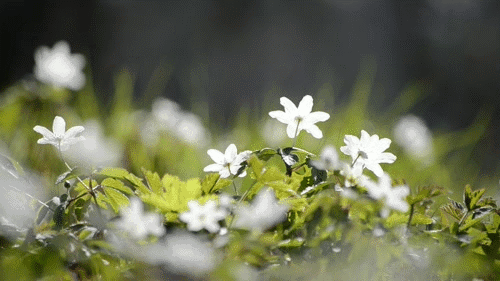
MAY
BEALTAINE/BELTANE
1st May
Origins: Celtic (Ireland/Scotland/Isle of Man)
Observed by: Wiccans, Neopagans, Celtic reconstructionist, Ásatrú/Heathens (as May Day)
One of the more well-known pagan festivals, Beltane is a festival of fire and the beginning of the summer. Also widely referred to as May Day, it is celebrated by lighting fires.
KALENDS
1st May
Origins: Ancient Greece/Rome
Observed by: Hellenic/Roman polytheists
Honouring the goddess Maia, for whom the month may have been named.
REMEMBRANCE FOR Guðröðr of Guðbrandsdál
9th May
Origins: C11 Norway, Icelandic Sagas
Observed by: Ásatrú, Norse, heathens
Guðröðr had his tongue removed by Óláfr for rebelling against violent conversion from Norse paganism to Christianity.

JUNE
KALENDS
1st June
Origins: Ancient Greece/Rome
Observed by: Hellenic/Roman polytheists
Anniversary of temples to Juno Moneta (protectress of money, her temple was where coins were made), Mars/Ares (God of war), and the Tempestates (goddesses of storms).
ARRHEPHORIA
3rd Skirophorion (translates to mid-June)
Origins: Ancient Greece
Observed by: Hellenic reconstructionist
Feast in celebration of Athena and fertility.
MIDSUMMER/SUMMER SOLSTICE
21st June
Origins: Agricultural holiday/longest day observed for centuries by many civilisations. Christianity can date to as early as C4th
Observed by: Wiccans/Germanic neopagans (as Litha), Asatru/Heathens, Druids (as Alban Hefin)
One of the main four holidays in the Wheel of the Year and popularised by Wiccans and neopagans as Litha which is taken from the Anglo-Saxon words for June/July, this is the longest day of the year and the middle point and sometimes considered the beginning of summer.

JULY
REMEMBRANCE FOR UNNR/AUD THE DEEP MINDED
9th July
Origins: C9th Iceland
Observed by: Ásatrú, Heathens, Norse reconstructionist
Aud was a traveller in the 9th century moving between Dublin, the Hebrides, Orkney, and finally Iceland following the deaths of her husband and son. This day is to honour her memory.
HERACLEIA
July/August
Origins: Ancient Greece
Observed by: Hellenic polytheists
Festival dedicated to Heracles the demigod and his death, involving feasting and celebration.

AUGUST
LUGHNASADH/LAMMAS
1st August
Origins: Celtic Britain (Ireland, Scotland, Isle of Man)
Observed by: Wiccans, Neopagans, Christians (as Lammas), Ásatrú (as Freyfaxi)
Named for the god Lugh, this festival is one of the Celtic harvest festivals and marks the beginning of the harvesting months. It was celebrated by climbing mountains, bull sacrifice, offerings, and feasting. Handfasting is commonplace with Wiccans in modern times.
REMEMBRANCE FOR REDBAD, KING OF THE FRISIANS
9th August
Origins: C7th Frisia (area of Germany/Netherlands)

SEPTEMBER
NOUMENIA
8th September
Origins: Ancient Greece
Observed by: Hellenic polytheists
Celebration of new Hellenic lunar month. Offerings of honey and incense made to household deities.
REMEMBRANCE FOR HERMANN THE CHERUSCAN
9th September
Origins: C9th CE
Observed by: Heathens, Ásatrú
Hermann the Cheruscan, also known as Arminius of the Cherusci tribe, led the defeat against the Romans at the Battle of Teutoburg Forest and is lauded for saving Eastern Germanic peoples from being conquered by the Roman Empire.
AUTUMN EQUINOX (NORTHERN HEMISPHERE)
22nd September
Origins: 1970s neopaganism
Observed by: Wiccans and Neopagans (as Mabon), Ásatrú (as Winter Finding)
Named Mabon by prominent Wicca and Neopagan Aidan Kelly, after the Welsh mythological figure Mabon ap Moldron, the autumn equinox is one of the harvest festivals and marks the beginning of autumn in the northern hemisphere. Mabon is a relatively new pagan holiday not based on any specific historical festival, but traditionally people around the world would celebrate some kind of harvest festival around the end of September/beginning of October.
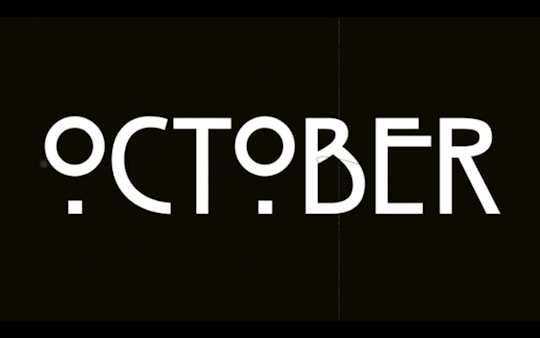
OCTOBER
PYANOPSIA
7th October
Origins: Ancient Greece
Observed by: Hellenic polytheists
Pyanopsia, or Pyanepsia, is a festival to honour Apollo, one of the most important deities, God of music, the sun, knowledge, healing, and archery - amongst other things. During the festival, two special offerings would be placed on doorways and carried to the temple. These offerings were a bean stew, and an olive branch wrapped in wool with honeys, pastries and seasonal fruits hanging from it.
REMEMBRANCE FOR LEIF EIRIKSSON
9th October
Origins: C10th CE
Observed by: Heathens, Ásatrú, Norse pagans
Remembrance for Leif and his sister Freydís Eiríksdóttir, children of Erik the Red, who are cited with being the first Norse explorers in North America.
THESMOPHORIA
12th-14th October
Origins: Ancient Greece
Observed by: Hellenic polytheists
Festival held in honour of Demeter Thesmophoros, goddess of agriculture, and her daughter Persephone, goddess of death and life, Queen of the Underworld. Celebrated primarily by women, this festival is linked with fertility, and we know very little about it due to its secretive rites. It is thought that it involved the sacrifice of pigs (although some sources say women), and abstinence.
REMEMBRANCE FOR ERIK THE RED
28th October
Origins: C9th CE
Observed by: Heathens, Ásatrú, Norse pagans
Erik the Red, probably named for the colour of his hair and beard, was the first permanent European settler in Greenland. His children were explorers too, who went to America, and although his wife converted to Christianity, Erik remained faithful to his Norse pagan gods.
SAMHAIN (HALLOWE'EN)
31st October-1st November
Origins: Gaelic - Scotland, Ireland, Isle of Man
Observed by: Celtic pagans, Neopagans, Wiccans
Pronounced SOW-in (sow rhyming with cow), Samhain was originally a harvest festival marking the beginning of winter. The day itself is the 1st November, but celebrations begin on October 31st, and this has become the accepted associated day. It's a festival of the dead, where the síthe, fae and spirits, can enter this realm from their own. Wiccans talk of a 'veil' thinning, meaning the boundary between worlds. Similar death related festivals around this time can be noted in other faiths from across the globe, and of course in the modern Hallowe'en.
WINTER NIGHTS (VETRNAETR), ÁLFABLÓT/DÍSABLÓT
31st October
Origins:
Celebrated by: Heathens, Ásatrú, Norse pagans
Winter Nights is mentioned in the Ynglinga Saga as one of the three greatest blessings of the year, the other two being Sigrblót in April, and þorrablót in late Jan/early Feb. Winter Nights is the celebration of the beginning of the winter season; Álfablót is a sacrifice to the elves, and Dísablót a sacrifice to the female spirits (dísir) and Valkyries.
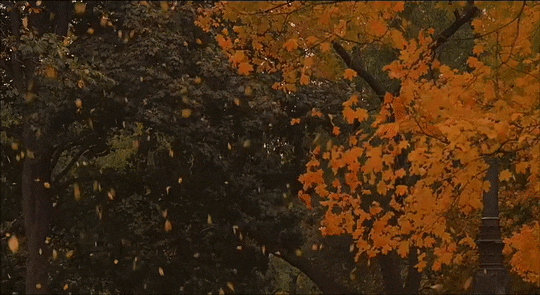
NOVEMBER
REMEMBRANCE FOR SIGRID THE HAUGHTY
9th November
Origins: C9th CE
Observed by: Heathens, Ásatrú, Norse pagans
It is not actually known whether Sigrid Storråda, or Sigrid the Haughty, was an actual historical figure, an amalgamation of a few, or simply a myth. The lore goes that she was proposed to multiple times and turned down many but went on to orchestrate conflict when a potential suitor - Olaf Tryggvason, King of Norway - attempted to convert her to Christianity.
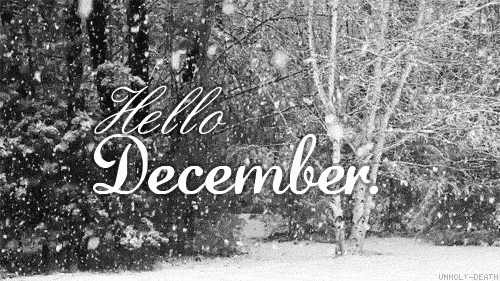
DECEMBER
REMEMBRANCE FOR EGILL SKALLAGRÍMSSON
9th December
Origins: C10th CE
Observed by: Heathens, Ásatrú, Norse pagans
Day celebrating the poet, farmer, and berserker Egill Skallagrímsson, who is recalled in The Icelandic Sagas by Snorri Sturluson. Egill is known for his many killings and escaping death by writing an epic poem after being captured when washing up on our Northumberland coastline.
SATURNALIA
17th - 23rd December
Origins: Ancient Rome
Observed by: Roman polytheists, some Hellenic
Like Yule and Lesser Dionysia, Saturnalia was the Roman winter festival celebrating the coming return of the sun and honouring the god Saturn. The standard feasting and drinking feature, and slaves would be treated as equals like Dionysia. Saturnalia is another festival cited as being picked up by Christians and used as inspiration for Christmas.
WINTER SOLSTICE (YULE/MIDWINTER)
21st December
Origins: Germanic nations, as early as C4th CE
Observed by: Norse pagans, Wiccans, Neopagans, LaVeyan Satanists, Ásatrú, Heathens, many Germanic nonpagan peoples
Yule is the midwinter festival known commonly among pagans as a time for feasting, being with loved ones, remembering ancestors, and looking forward to the return of the light and warmer days. Many pagans will celebrate Yule for more than one day, some celebrating a week either side, some for longer, up to two months, and some for twelve days afterwards. True Yule would have originally been in January for midwinter, but King Haakon the Good
moved it to coincide with the Christian celebrations in the 10th century, as told in the Ynglinga Saga.
On the 24th of December, Anglo Saxons are said to have celebrated 'Mothers Night' honouring female ancestors.
RURAL/LESSER DIONYSIA
End of December/beginning of January
Origins: Ancient Greece
Observed by: Hellenic polytheists
Smaller festival honouring the god Dionysus (Greater Dionysia took place in cities at the end of winter). Feasting, mask wearing to stop distinction between classes so that everyone could feel equal, sacrifices, parades, and phallic display were all used to celebrate.
#wheel of the year#wiccan#pagan#heathen#greek#mythology#holidays#religious holidays#pagan holidays#non-Abrahamic holidays#witch#witchcraft#witchblr#pagan wicca#polytheism#paganism#witches#witch holidays#witches holidays#pagan witch
39 notes
·
View notes
Text
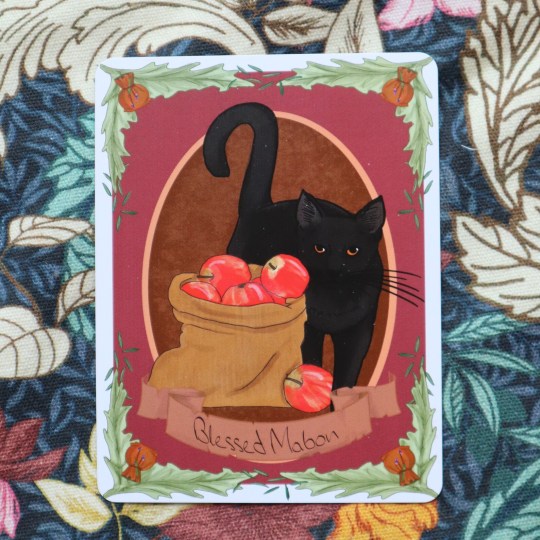
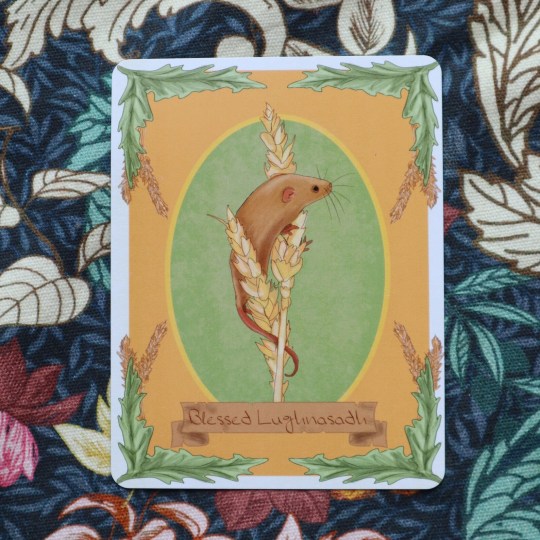

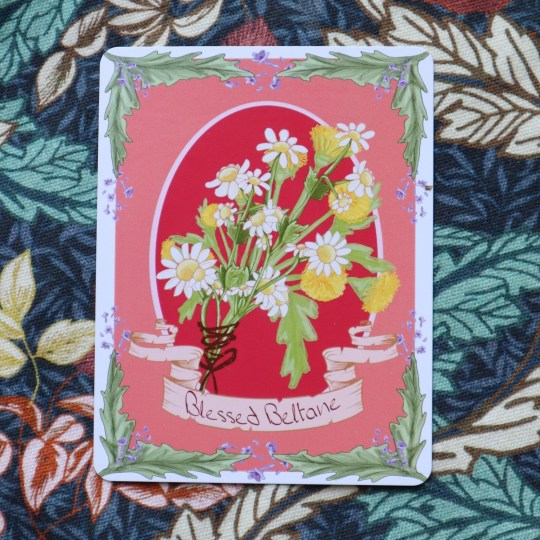

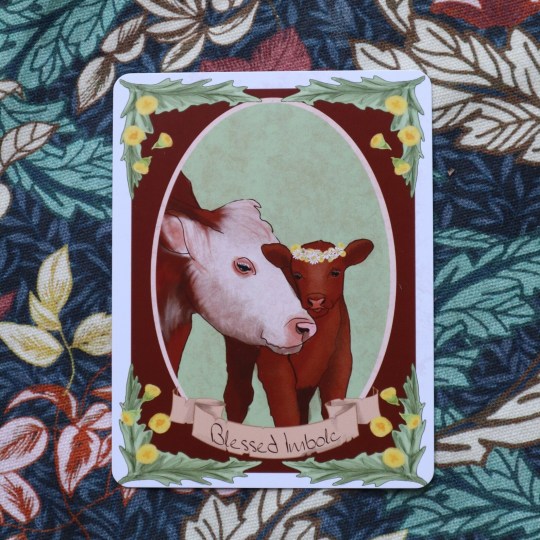
Wheel of the Year Art Prints by ofcraftsandcurios
Mabon // Lughnasadh // Litha // Beltane // Ostara // Imbolc
#art#art print#wheel of the year#pagan#pagan holidays#mabon#lughnasadh#litha#beltane#ostara#imbolc#samhain#yule#witchy#witchcraft#witchy art#drawing#illustration
167 notes
·
View notes
Text
Witchcraft websites: “Ostara is a great time to plant seeds and prepare the garden!”
My home at this time of year:

#happy spring equinox!#personal#pagan holidays#holidays#spring#spirituality#heathenry#witchcraft#paganism#polytheism#pagan#pagan festivals#ostara#beltane
109 notes
·
View notes
Text
Blessed Greetings for this holiday ✨️🌙💖
Beltane for the Northern Hemisphere 💐
Samhain for the Southern Hemisphere 🎃
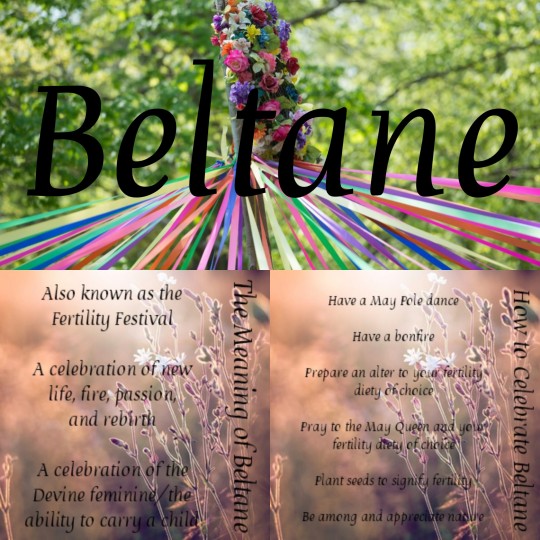
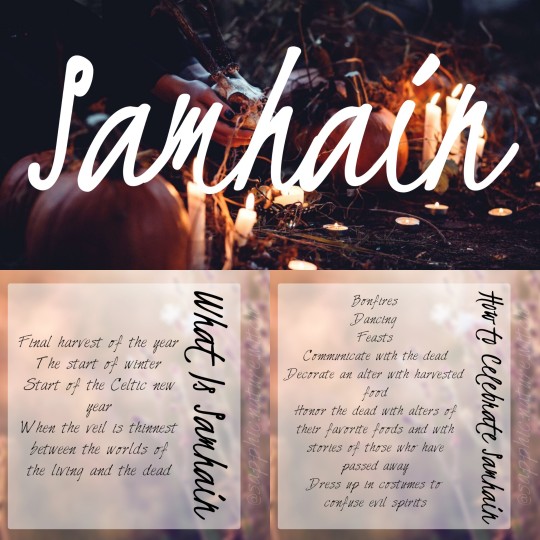
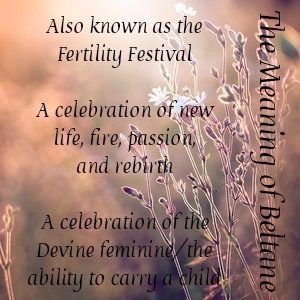
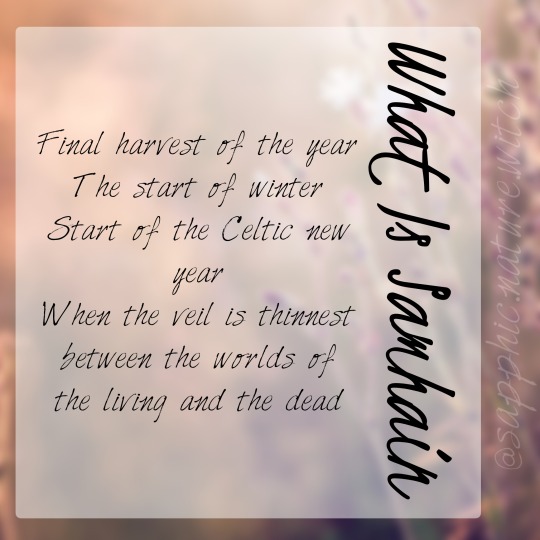
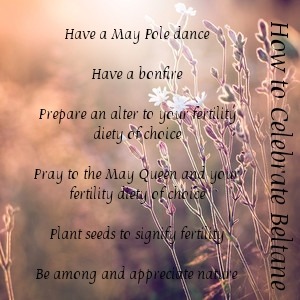



#green witch#cottage witch#witchythings#nature witch#witch#witchyvibes#witchblr#witch aesthetic#pagan witch#witch community#sapphic nature witch#pagan holidays#samhain#beltane
221 notes
·
View notes